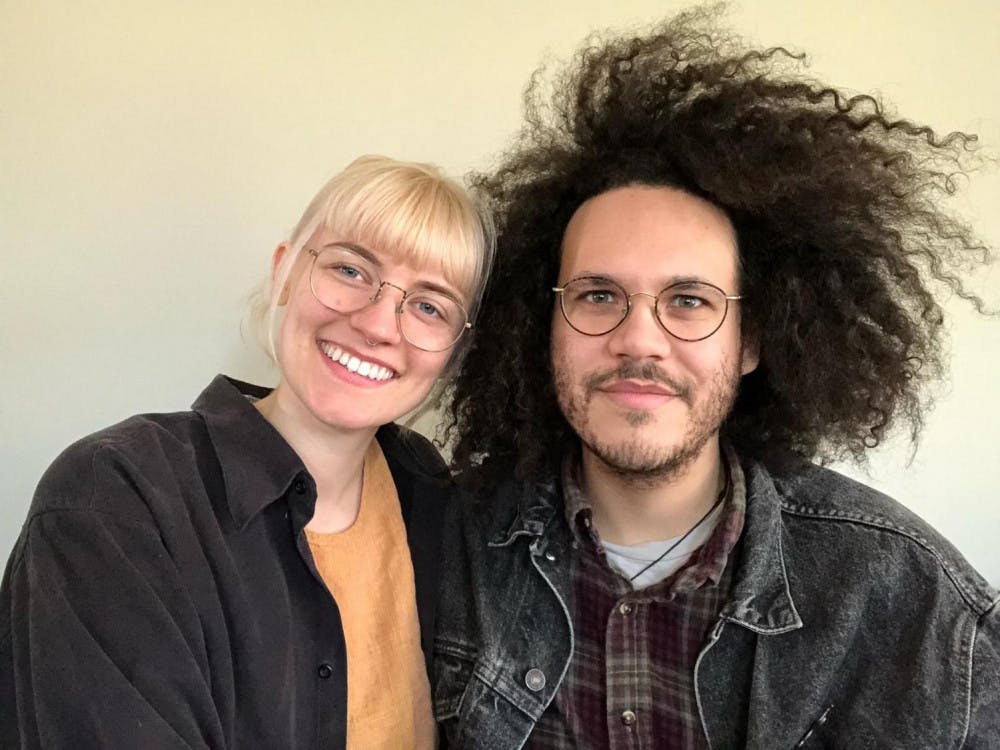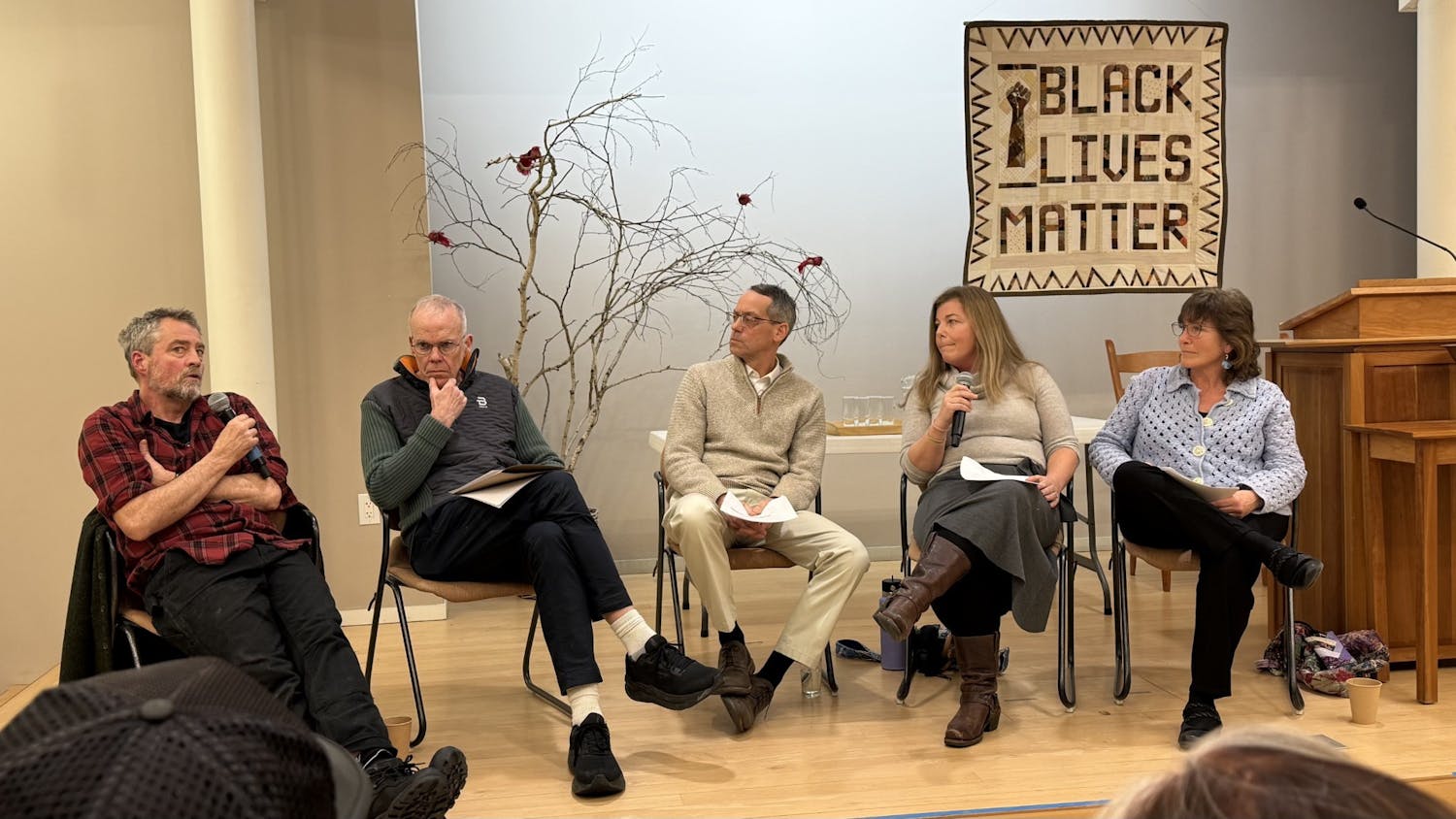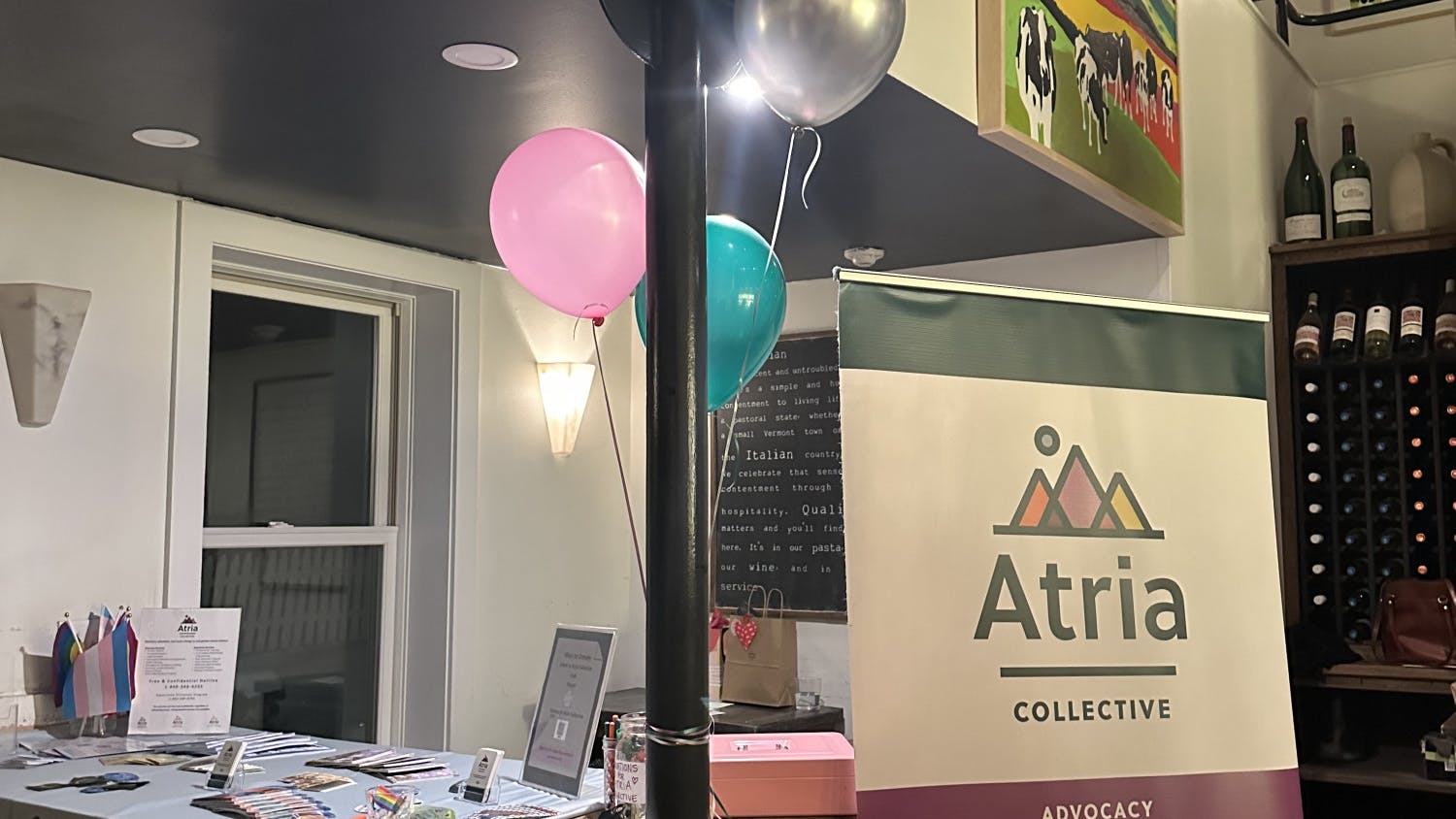For Aless and Matt Delia-Lôbo, making coffee has never been about the money.
“Working in coffee pays terrible because it’s minimum wage, but you’re also a craftsperson,” said Matt. “What I’m hoping to do with the cup of coffee we’re going to be serving is to help push the craft itself.”
The couple, who are planning on opening Royal Oak Coffee at 30 Seymour St. in Middlebury around May 1, hope to fill a void left by Cursive Coffee, a specialty coffee shop that closed its doors after nine short months of operation.
“Cursive Coffee was two guys: one person would work each day, and they would alternate,” explained Matt. “We would visit them as much as we could, and we saw the hole that their departure left — people saying, ‘oh, good coffee is gone.’”
In a time when coffee is one of the world’s leading commodities, Matt and Aless hope to brew a cup that tastes good, is ethical and draws the community together.
“I think that where the industry is going, you have people who are trying to make it so that anybody can get into coffee, work at one of these bigger companies, and then you can learn how to make it that way [...] in their stores,” said Matt, explaining that such companies tend not to cater to individual pallets. “Even when you’re trained to [make coffee] in a certain way, you’re going to do it differently because of all the physical variables that go into the making of a cup of coffee,” he described.
With years of barista-ing under their belts, Aless and Matt feel qualified and ready to pursue their dream of opening a shop. Aless, who started working as a barista seven years ago, met Matt while on the job.

Aless and Matt Delia-Lôbo will bring their new café to 30 Seymour St.
“When we were working at the coffee shop where we met, we both got really into the drink creation side of the business and all the science around that,” Aless said. “Matt and I realized that coffee could be something way cooler than it was at the place where we were working back then.”
Over time, it became clear to the couple that opening a shop of their own was something that needed to happen.
“If your passion is being behind a bar, making coffee for people, your only option is to open your own shop,” said Matt. “Even being a lead barista, you’re only making a few bucks more than someone who started yesterday.”
While the coffee industry does not draw handsome wages for its baristas, the money made by growers is far lower. Aless and Matt hope to bring customers an ethical and delicious product while also maintaining an accessible reputation.
“Every consumer has the option and the right to be informed. We don’t want coffee to be some untouchable thing, but we also want people in the supply chain to be treated with respect and dignity,” Aless explained. “We have a huge sustainability mission with our own company, and we believe that agricultural and retail-driven industries should include a conscious consumer. I think it would be amiss to not get ahead on that.”
“I think that coffee can change how people view something,” added Matt. “The pricing of our coffee has an effect, and we want people to think about that, especially since in our culture people are buying coffee all the time. We want to be the coffee version of someplace like the Co-op, where you can read about the people who grow your food and know where your money is going.”
Beyond the ethics of the coffee itself, Aless and Matt hope to create a space that makes people feel welcome and at home.
“We want to make a space where people feel comfortable when they come in to see us,” Aless said. “We want to have good music, we want to have conversations with everyone. We want to be part of the community on a personal basis, and we want to make the shop a place that people want to be in.”
As part of the third wave coffee movement, which emphasizes the origins and ethical production of artisanal coffee, the two are working to deconstruct the stereotypes that tend to follow coffee culture in cities.
“We really want an unpretentious approach,” said Aless, “and I think that when you bring in terms like ‘specialty coffee’ and ‘third-wave coffee’ and that’s kind of the umbrella term, but our approach is much more universal.”
Matt addressed other concerns that have arisen in more urban spaces upon the arrival of more specialized coffee shops: “Coffee like what we’re bringing has been seen as a harbinger of gentrification. People see the coffee shop going in and think, ‘Oh, now rent is going to go up and all the weird hipsters are going to move in and crowd the space,’ but I feel that here, there’s no danger of that happening,” he said.
In a place where coffee’s reputation is less stigmatized, the couple is excited to share their craft with the world and is eager to have Middlebury residents sample their brews.
“I hope people trust us enough to try black coffee,” said Matt. “I hope people care a little bit about what the coffee itself tastes like, just to see and experiment. In terms of a place like this, it’s always fun to try a black coffee and see what it’s like.”
Regardless of the adventurousness of their future customers, Matt and Aless have already observed the community’s embrace of their future shop.
“The community here is incredible,” said Matt.
“Yes,” added Aless, “I don’t think I’ve ever gotten so many hugs from strangers in my life.”

Ariadne Will ’22 is a local editor for the Campus.
She has previously served as a staff writer, where she covered topics ranging from Middlebury’s Town Meeting to the College’s dance performances.
Will also works for her hometown newspaper, the Daily Sitka Sentinel, where she covers tourism and the Sitka Planning Commission.
She is studying English and American literature with a minor in gender, sexuality and feminist studies.




